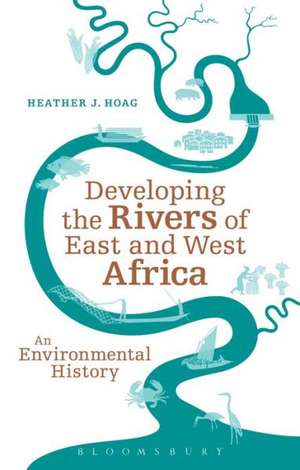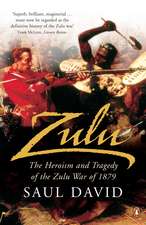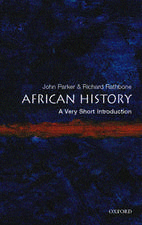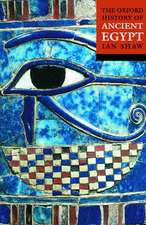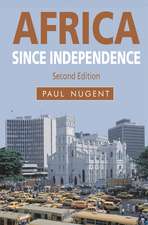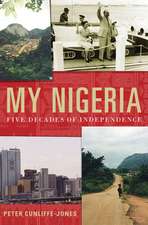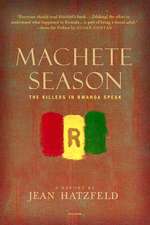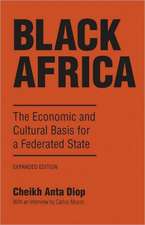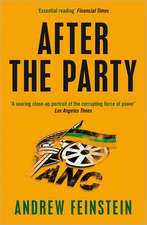Developing the Rivers of East and West Africa: An Environmental History
Autor Professor Heather J. Hoagen Limba Engleză Paperback – 11 sep 2013
Preț: 218.47 lei
Preț vechi: 262.96 lei
-17% Nou
Puncte Express: 328
Preț estimativ în valută:
41.80€ • 43.65$ • 34.60£
41.80€ • 43.65$ • 34.60£
Carte tipărită la comandă
Livrare economică 05-19 aprilie
Preluare comenzi: 021 569.72.76
Specificații
ISBN-13: 9781441155405
ISBN-10: 1441155406
Pagini: 304
Dimensiuni: 138 x 216 x 10 mm
Greutate: 0.39 kg
Editura: Bloomsbury Publishing
Colecția Bloomsbury Academic
Locul publicării:London, United Kingdom
ISBN-10: 1441155406
Pagini: 304
Dimensiuni: 138 x 216 x 10 mm
Greutate: 0.39 kg
Editura: Bloomsbury Publishing
Colecția Bloomsbury Academic
Locul publicării:London, United Kingdom
Caracteristici
The first historical study of the key themes in African river history.
Notă biografică
Heather J. Hoag is Associate Professor of History at the University of San Francisco, USA. She is one of the founding editors for the International Water History Association's journal, Water History.
Cuprins
1. Introduction: Harnessing Africa's WatersPart One: From the river's edge2. Unpredictable blessings: Life along the Rufiki River, Tanzania3. Mapping a Continent: British exploration of the Niger RiverPart Two: Colonizing Africa's rivers4. Greening the Fields: Agricultural development during the colonial period5. Electrifying the Empire: Debates about power production in AfricaPart Three: The changing value of rivers6. The damming of Africa: Converting African water to hydropower7. Thirsty cities: Urbanization and the changing values of African riversEpilogue: Managing Africa's Rivers in the twenty-first centuryHistorical glossaryBibliographyIndex
Recenzii
Serving as a useful introduction to hydrological themes in African environmental history, this book adds to the historical coverage of Africa's waterscapes by focusing primarily on East Africa, with a chapter on Ghana's Volta River. However, the Rufiji River region of Tanzania dominates. These sections most clearly demonstrate the author's themes, notably, the juxtaposition of European scientific knowledge and local ecological knowledge, as well as the recurrent need to gain historical context before embarking on hydrological projects. Overall, Hoag (Univ. of San Francisco) presents a well-documented environmental history and delivers fascinating insights into how both East African and colonial populations have understood and misunderstood the rivers on which they depended. Summing Up: Recommended. All academic levels/libraries.
One of the strengths of this study is its treatment of conflicting goals within colonial and early independence planning regarding the regulation of rivers.Hoag is very effective in her examination of the varied goals and effects of development programs linked to rivers. This is a very original study on a topic that is of paramount importance in understanding changing conceptions and results of development. The book's organization and wide scope would work well in an advanced undergraduate or graduate course. All inall, this book is highly recommended.
[Hoag] offers an overview of modern African history that will be useful to readers interested in the environmental history of water development across the continent.
Heather Hoag has written an eclectic book. One hopes that it will whet the thirst of other scholars to explore vital research questions in Africa's water history.
[This book] provides the most significant historical-geographical treatment of rivers in Africa since W.M. Adams' enduringly influential study, Wasting the rain: rivers, people and planning in Africa ... [Developing the rivers of East and West Africa] merits a wide readership and the crisp concluding sections with which Hoag wraps up each chapter make it particularly student-friendly, as does the 'historical glossary'.
One of the strengths of this study is its treatment of conflicting goals within colonial and early independence planning regarding the regulation of rivers.Hoag is very effective in her examination of the varied goals and effects of development programs linked to rivers. This is a very original study on a topic that is of paramount importance in understanding changing conceptions and results of development. The book's organization and wide scope would work well in an advanced undergraduate or graduate course. All inall, this book is highly recommended.
[Hoag] offers an overview of modern African history that will be useful to readers interested in the environmental history of water development across the continent.
Heather Hoag has written an eclectic book. One hopes that it will whet the thirst of other scholars to explore vital research questions in Africa's water history.
[This book] provides the most significant historical-geographical treatment of rivers in Africa since W.M. Adams' enduringly influential study, Wasting the rain: rivers, people and planning in Africa ... [Developing the rivers of East and West Africa] merits a wide readership and the crisp concluding sections with which Hoag wraps up each chapter make it particularly student-friendly, as does the 'historical glossary'.
